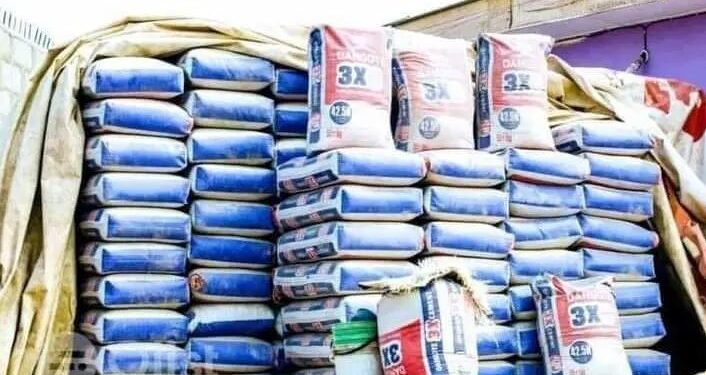Dangote And BUA To Freeze Cement Price For Govt Projects

Chairman of BUA Group, Abdul Samad Rabiu, announced on Thursday that the company will freeze cement prices for all contractors handling projects under the Federal Government’s Renewed Hope agenda, in a bid to support President Bola Tinubu’s economic recovery efforts.
This is as President Bola Tinubu and Rabiu met at the Presidential Villa, Abuja, on efforts by the BUA Foods to crash the prices of food in the country.
Briefing journalists after the meeting, Rabiu expressed happiness that the prices of food have come down compared to what they were last year.
He also explained why the price of BUA cement is relatively high, attributing it to the flotation of the naira.
Rabiu also disclosed that the initiative to crash prices of cement for the renewed hope agenda projects was agreed upon in partnership with Alhaji Aliko Dangote, chairman of Dangote Cement, and is aimed at curbing cost escalations on critical infrastructure projects across the country.
He said: “We have decided that we are going to freeze the price of cement for any contractor that is involved with the Renewed Hope projects,” Rabiu said. “There will be no increase for the foreseeable future. This is our contribution to support Mr President’s Renewed Hope Initiative.”
Rabiu revealed that the Cement Manufacturers Association of Nigeria (CEMAN) has been restructured to drive this commitment, with Engineer Yusuf Binji of BUA Cement appointed as its new chairman.
The Cement Technology Institute of Nigeria (CTIN), which focuses on training artisans in the construction sector, will also receive renewed funding – between ₦15 and ₦20 billion annually – via a levy of ₦20 to ₦30 per bag of cement sold by members.
He praised the Minister of Works, David Umahi, for promoting the use of concrete roads, which he described as more cost-effective and durable than traditional bitumen-based roads.
Rabiu hailed President Tinubu’s decision last year to grant a six-month duty waiver on select food imports as a game-changer in tackling food inflation.
He said BUA Foods leveraged the policy to import large quantities of rice, maize, and wheat, which have significantly lowered food prices nationwide.
“At the height of the crisis last year, a 50kg bag of rice was selling for over ₦110,000,” Rabiu recalled.
“Today, it’s about ₦60,000. Flour has dropped from ₦80,000 to ₦55,000 per bag, maize from ₦60,000 to ₦30,000.”
He attributed this drastic reduction to the disruption of hoarding practices within the rice supply chain, made possible by increased availability from BUA’s imports.
“A lot of people used to hoard rice paddy after harvest to create artificial scarcity. But once our imports started hitting the market, their hoarded stocks lost value, and the market adjusted,” Rabiu said.
He added that the Rice Millers Association of Nigeria has since adopted measures to discourage hoarding among its members, ensuring that future attempts to manipulate rice prices will be futile.
“We’ve imported enough rice to last till the end of the year. Anyone trying to hoard now risks massive losses,” Rabiu warned, expressing optimism that prices will remain stable moving forward.
He noted that the positive impact of falling food prices often goes unnoticed in public discourse.
“When rice hit ₦110,000, everyone was shouting. Now it’s down to ₦60,000, and no one’s saying anything. But I’m happy to report that food prices are coming down and will continue to.”
Rabiu thanked President Tinubu for his foresight and policy leadership, stating that BUA Group remains committed to supporting government initiatives that promote economic stability and public welfare.
“We will continue to do more to support the economy and our country,” he concluded.





